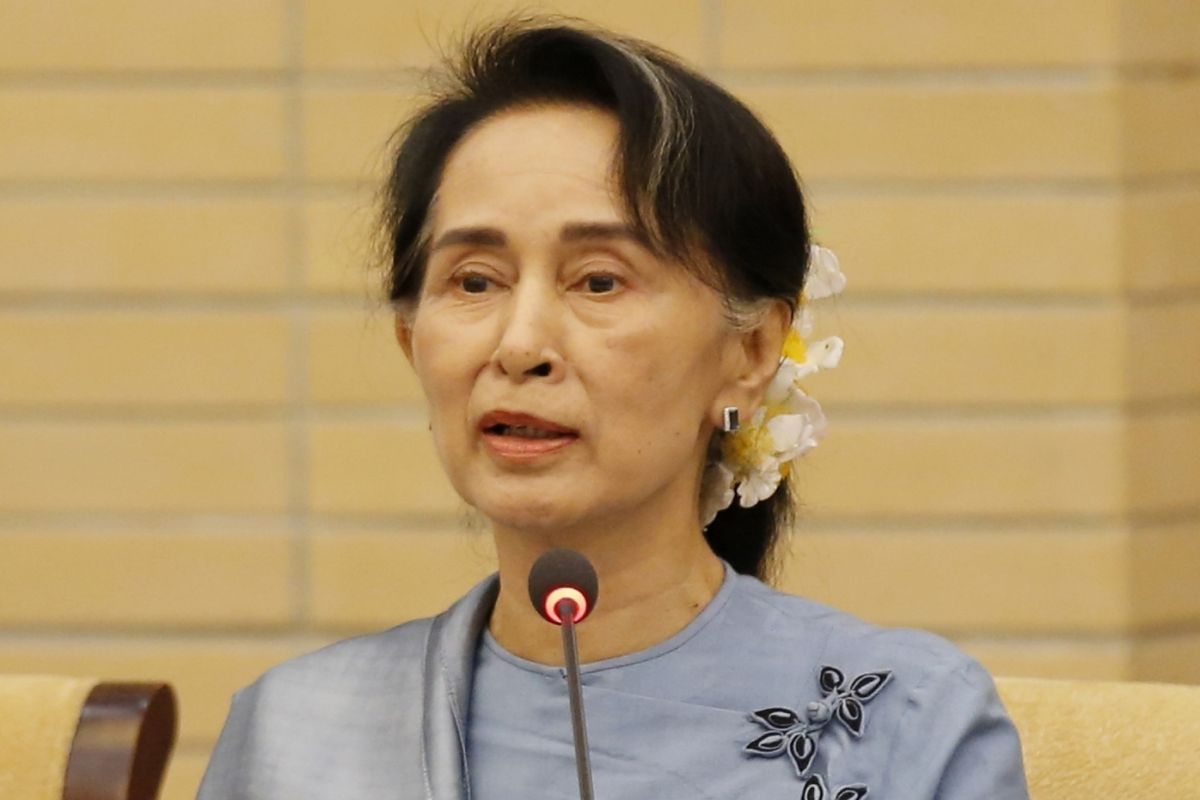The renewed privation of Aung San Suu Kyi was reinforced on Monday when she went on trial with distinct symptoms of being unwell.
She faces a bevy of charges since being overthrown by the army in a coup on February 1, one that cut short a decade of tentative democratic reforms and has increasingly plunged the South-east Asian country into chaos.
Advertisement
“Daw Aung San Suu Kyi seemed not very well but throughout the hearing she seemed quite interested and paid keen attention,” the head of her legal team, Khin Maung Zaw, said in a statement after the day’s hearing.
Her supporters are emphatic that the charges are politically motivated and basically intended to end the political life of a person who championed democracy for decades under previous military administrations, much of the time under house arrest.
The icon of democracy had, it would be pertinent to recall, suffered the predicament since the early 1990s.
Thirty years later, Myanmar bears witness to almost a repetition of history. The omnipotent military (Tatmadaw) has denied her the right to assume power despite the spectacular election victory.
She is now in the dock in a decidedly spurious attempt to add salt to the wound. The Nobel Peace Prize laureate faced three cases on Monday at the specially built court in the capital, Naypidaw, where she had already appeared at preliminary hearings.
As it turned out, two of Monday’s cases were linked to the possession of the radios and one under the Natural Disaster Management Law for violating coronavirus regulations while campaigning for the election last November. Monday’s hearings lasted more than five hours.
She also faces charges of incitement and more serious charges of violating the Official Secrets Act and under the Anti-Corruption Law. Her legal team has denied any wrongdoing by Suu Kyi and her chief lawyer, Khin Maung Zaw, binned the most recent corruption charges as “absurd”. Phil Robertson, Deputy Asia Director, Human Rights Watch, said that the charges Suu Kyi faces “are bogus, and politically motivated” and “should be dropped, resulting in her immediate and unconditional release”.
Nonetheless, vis-a-vis the authorities she is on a weak wicket.
The army says it assumed power by force because Suu Kyi’s party, the National League for Democracy (NLD), won the election through fraud, an accusation rejected by the previous Election Commission and international monitors.
The people’s revolt against the military takeover and her arrest have been greeted with brutal severity. Myanmar’s security forces have killed at least 862 people during the crackdown on protests since the coup, according to the Assistance Association for Political Prisoners, an activist group.
Predictably, the junta disputes the number. Pro-democracy supporters took to the streets of Yangon on Monday, some chanting “revolutionary war, we participate”, according to social media posts. Violence is intensifying and the United Nations High Commissioner for Human Rights, Michelle Bachelet, has condemned the army’s “outrageous” use of heavy weapons. Suu Kyi fights her battles in court.











